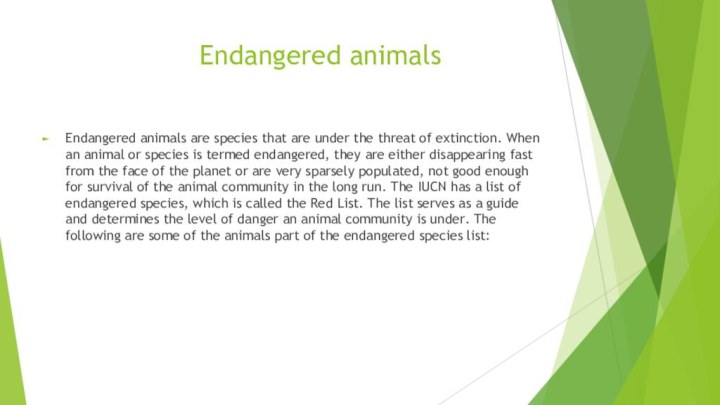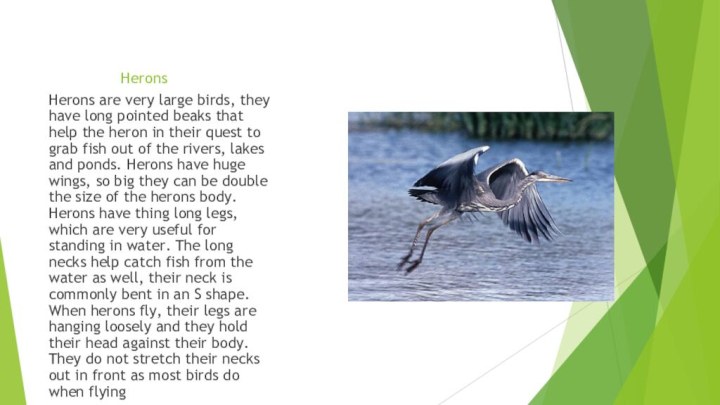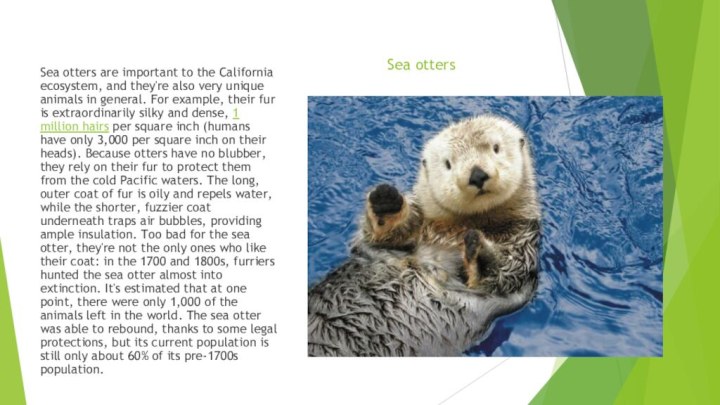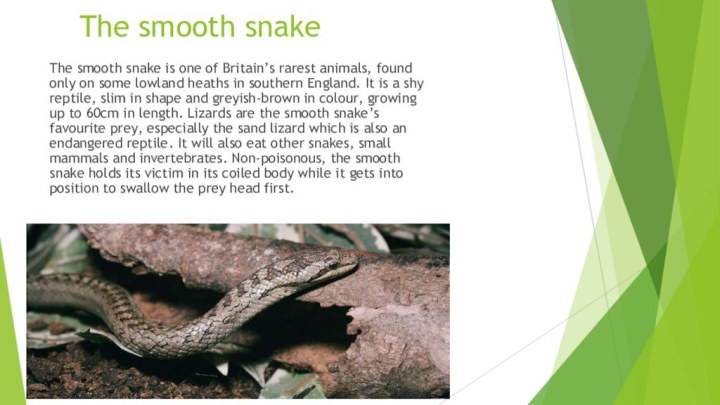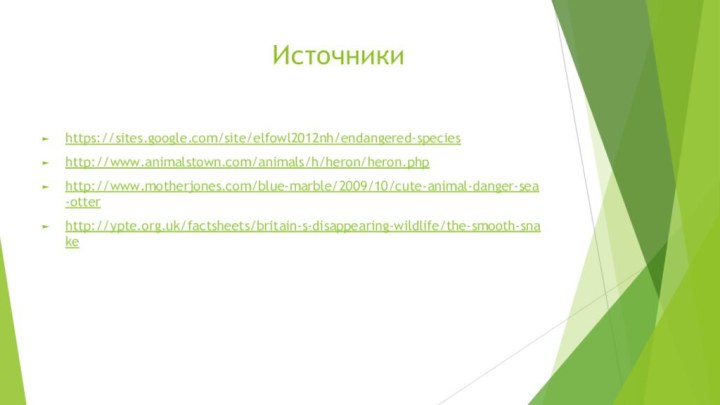Endangered animals
Endangered animals are species that are
under the threat of extinction. When an animal or species is termed endangered, they are either disappearing fast from the face of the planet or are very sparsely populated, not good enough for survival of the animal community in the long run. The IUCN has a list of endangered species, which is called the Red List. The list serves as a guide and determines the level of danger an animal community is under. The following are some of the animals part of the endangered species list:
Слайд 3
The Elf Owl
During October of
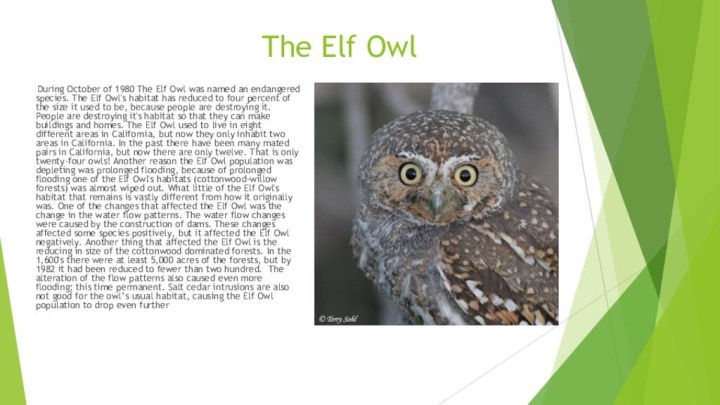
1980 The Elf Owl was named an endangered species. The
Elf Owl's habitat has reduced to four percent of the size it used to be, because people are destroying it. People are destroying it's habitat so that they can make buildings and homes. The Elf Owl used to live in eight different areas in California, but now they only inhabit two areas in California. In the past there have been many mated pairs in California, but now there are only twelve. That is only twenty-four owls! Another reason the Elf Owl population was depleting was prolonged flooding, because of prolonged flooding one of the Elf Owl's habitats (cottonwood-willow forests) was almost wiped out. What little of the Elf Owl's habitat that remains is vastly different from how it originally was. One of the changes that affected the Elf Owl was the change in the water flow patterns. The water flow changes were caused by the construction of dams. These changes affected some species positively, but it affected the Elf Owl negatively. Another thing that affected the Elf Owl is the reducing in size of the cottonwood dominated forests. In the 1,600's there were at least 5,000 acres of the forests, but by 1982 it had been reduced to fewer than two hundred. The alteration of the flow patterns also caused even more flooding; this time permanent. Salt cedar intrusions are also not good for the owl’s usual habitat, causing the Elf Owl population to drop even further
Слайд 4
Herons
Herons are very large birds, they have long
pointed beaks that help the heron in their quest
to grab fish out of the rivers, lakes and ponds. Herons have huge wings, so big they can be double the size of the herons body. Herons have thing long legs, which are very useful for standing in water. The long necks help catch fish from the water as well, their neck is commonly bent in an S shape. When herons fly, their legs are hanging loosely and they hold their head against their body. They do not stretch their necks out in front as most birds do when flying
Слайд 5
Sea otters
Sea otters are important
to the California ecosystem, and they're also very unique
animals in general. For example, their fur is extraordinarily silky and dense, 1 million hairs per square inch (humans have only 3,000 per square inch on their heads). Because otters have no blubber, they rely on their fur to protect them from the cold Pacific waters. The long, outer coat of fur is oily and repels water, while the shorter, fuzzier coat underneath traps air bubbles, providing ample insulation. Too bad for the sea otter, they're not the only ones who like their coat: in the 1700 and 1800s, furriers hunted the sea otter almost into extinction. It's estimated that at one point, there were only 1,000 of the animals left in the world. The sea otter was able to rebound, thanks to some legal protections, but its current population is still only about 60% of its pre-1700s population.
Слайд 6
The smooth snake
The smooth snake is one of
Britain’s rarest animals, found only on some lowland heaths
in southern England. It is a shy reptile, slim in shape and greyish-brown in colour, growing up to 60cm in length. Lizards are the smooth snake’s favourite prey, especially the sand lizard which is also an endangered reptile. It will also eat other snakes, small mammals and invertebrates. Non-poisonous, the smooth snake holds its victim in its coiled body while it gets into position to swallow the prey head first.

